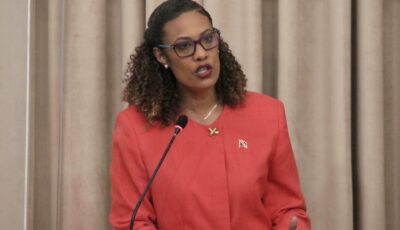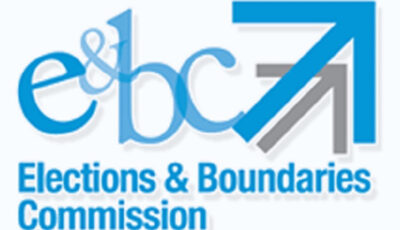HEADLINES
Commentary
Rowley strenuously objected to the construction of Penal-Debe UWI Campus
The media is reporting that the UWI Penal-Debe Campus, built during the People’s Partnership Administration continues to sit empty and has never
Posted On 30 Oct 2023
Blighted WGTL Project continues to haunt PNM
That World Gas-to-Liquids project is another of the many PNM scandals and failed projects which has cost taxpayers billions of dollars! And it is
Posted On 22 Jun 2023
Who financing Balisier House?
Ferdinand Ferreira, a founding member of the People’s National Movement (PNM), is quoted in the media as saying that the party has always
Posted On 03 Apr 2023
UNC SENATORS DEFENDED THE PARTY WELL TODAY
Today, the Opposition UNC Senators defended themselves and the Party well from the frivolous, anti-democratic motion by Senator Anthony Viera.
Posted On 22 Feb 2022
COVID WORKERS FIGHTING A WAR WITHOUT THEIR PROPER WEAPONS
We congratulate Kamla Persad-Bissessar on her success in forcing the Government to conduct an inquiry into the handling of covid. We take this
Posted On 20 Feb 2022
Letters
For fools rush in where angels fear to tread
The National Security Minister’s recent unrestrained language and conduct towards judges and unjustified criticisms of their judicial functions
Posted On 14 May 2023
Seek a fresh mandate
I recently read in one of the daily newspapers that Minister of National Security Fitzgerald Hinds said that 70% of society wants to see him
Posted On 27 Dec 2022
Don’t Blame God for Rowley’s Dotishness
Prime Minister Keith Rowley at the PNM convention on December 4, 2022, announces a National Day of Prayer. He said the country must come together
Posted On 16 Dec 2022
Keith Rowley has betrayed the sanctity of Parliament
Dear Editor, The revelation by the Commissioner of Police that the emails which Keith Rowley, then Opposition Leader read in our nations
Posted On 19 Jul 2019
T&T owes Kamla a debt of gratitude
Kamla Persad-Bissessar did what many were not expecting… she and her MPs voted unanimously with the Government to ensure passage of the Civil
Posted On 09 Apr 2019
Press Releases
Tancoo: Flooding imminent as Government fails to act
After a couple days of scattered “April showers” earlier this week, MP for Oropouche West, Dave Tancoo is again warning that severe flooding in
Posted On 06 Apr 2024
MP Khadijah Ameen wants justice for Kiss Driver’s death
Member of Parliament for St. Augustine, Ms. Khadijah Ameen is calling for justice for the death of Kiss delivery driver, Neil Ballai. Ballai was
Posted On 06 Apr 2024
UNC’s Persistent Pressure Forces Rowley Gov’t to Release 2024 EBC Report
On the heels of intense, consistent pressure from the UNC over their highly questionable refusal to lay the 2024 EBC Boundaries Report in
Posted On 06 Apr 2024
Moonilal: Hinds Fails Fire Service, Lives at Risk as Equipment Crumbles
The collapse of the Trinidad and Tobago Fire Services is another crushing indictment on the spectacularly failed Fitzgerald Hinds as Minister of
Posted On 05 Apr 2024
Padarath: Gov’t Electricity Rate Hike “Unbearable Burden”
Princes Town MP, Barry Padarath said that the contents of a report in yesterday’s Business Guardian headlined “RIC Recommends
Posted On 05 Apr 2024
Speeches
Tancoo: calls on Imbert to have a heart and indemnify the population
Today we come to you to shine some light on a very worrying development that has happened in the past few days. I am sure many of you saw or
Posted On 08 Sep 2021
Rowley’s Mad Power Grab in Tobago
My friends, we are seeing a government that is in freefall – in every single sector. Health, National Security, the business sector. And what
Posted On 16 Feb 2021
Presentation of UNC general election candidates 2020
T&T family! UNC family! It is my absolute pleasure to speak with you today, as we get ready for the sweeping victory that is to come on
Posted On 19 Jul 2020
Kamla: My vision is to build an intelligent nation
“ON THE BALLOT” UNC VIRTUAL MEETING (June 25, 2020) Introduction Good evening and thank you for joining us once again as we continue to set the
Posted On 26 Jun 2020
MNF – Kamla: There is hope
Introduction Good evening T&T! Good evening UNC family! It is good to be back! 2020 we are ready to rumble! Are you ready? Even though it’s
Posted On 11 Mar 2020
Copyright © - 2023 United National Congress







Correcting Colm
Kevin Ramnarine.
By Kevin Ramnarine
In the early 1980’s when the first oil boom had come to an end, the late Prime Minister George Chambers famously remarked “Fete Over Back to Work”. Carnival 2017 is over and we will soon see whether MX Prime is a prophet. With Carnival over the economy and crime take centre stage as the biggest issues.
In thinking about the economy, I want to deal with two separate issues that were brought to the fore by the Minister of Finance on March 6th and 7th in the House of Representatives and in the Senate respectively.
On March 6th, the Minister of Finance, Colm Imbert told the country that Petrotrin had recorded a loss of TT$ 4.5 billion in 2016. This was increased loss making position compared to the approximately TT$600 million loss that was reported earlier. The Minister, as could be expected, put the blame for this bigger hole in the profit and loss statement on the former Government who he alleged had hidden the losses of the company.
Given that nothing Mr. Imbert does surprises me, I kept calm and proceeded to study the matter.
The issue is simple. When a company makes a loss or if a company has unrelieved capital allowances, it can carry these forward as a “deferred tax asset”. Note that this has nothing to do with deferring taxes or not paying taxes.
Carrying losses forward as a deferred tax asset is an accepted accounting practice and it considers that the company is a “going concern”. That is to say, a company is a continuum.
A “deferred tax asset” is carried on the balance sheet of the company. In Petrotrin’s audited accounts for the year 2015, the “deferred tax asset” was reported in the Balance Sheet as being about TT$ 4.5 billion. The auditors will however only allow losses to be carried forward as a “deferred tax asset” if there is a good chance that the company will be profitable in the near future.
That is to say, if the company will have taxable income. In 2015 both Petrotrin and the auditors believed that Petrotrin had a good chance of being profitable again and hence they left the deferred tax asset on the balance sheet.
What therefore happened between 2015 and 2016? Clearly it was the view of Petrotrin that the deferred tax asset should be impaired or written off because it no longer had any use.
A deferred tax asset can only have a use if there is taxable income. The clincher is now this. The fact that the company impaired the “deferred tax asset” and expensed it in the profit and loss statement says the company believes that it will have no use for this asset in the future.
One can therefore logically conclude that Petrotrin is of the view that it would not make a profit anytime soon.
Petrotrin may have also been trying to avoid the embarrassment of getting a “qualified opinion” from its auditors. A qualified opinion is a statement issued after an audit is done that suggests the information provided was limited in scope.
The auditors may have therefore had an issue with keeping that deferred tax asset on the books given the negative outlook for the company.
The long and the short of all this is that nothing was ever hidden by the former Government and the Minister of Finance was being his usual political self when he made that allegation. Petrotrin’s external auditor is KPMG who audits the company to international standards.
KPMG signs off annually on Petrotrin’s audited accounts and these audited accounts are laid in Parliament and made public. It is therefore wrong to suggest that something was being hidden or not reported. To suggest subterfuge is to attack the integrity of the auditor who happens to be one of the big four auditing firms in the world.
The second issue has to do with statements by the Minister of Finance, in the Senate last Tuesday March 7th 2017 regarding Petrotrin’s tax liability. In replying to a supplemental question from Senator Wade Mark, the Minister of Finance said, “Under this Government Petrotrin has resumed once again to start paying taxes to the treasury which it was allowed not to do under the UNC Government”.
The records of the EITI show that Petrotrin made significant payments to the Government from 2011 to 2015. In total, from 2011 to 2015, Petrotrin paid TT$ 20.1 billion in taxes, royalties and other payments.
It is therefore incorrect to tell the Parliament that Petrotrin was not allowed to pay its taxes under the UNC. Once again, and I’m sure not for the last time, the Minister of Finance allowed his political self to trip him up.
The country is at a most sensitive and critical juncture in its economic history. At this time the country needs leadership on matters of the economy. At such a time, it is critically important that we remove politics from the affairs of the Ministry of Finance. Sadly, that seems impossible since Mr. Imbert is perhaps the most political Minister of Finance in history.
Share this:
Like this:
Imbert misleading the country on Petrotrin
Correcting the record on natural gas curtailments
Commentary
Rowley strenuously objected to the construction of Penal-Debe UWI Campus
Blighted WGTL Project continues to haunt PNM
Who financing Balisier House?
UNC SENATORS DEFENDED THE PARTY WELL TODAY
COVID WORKERS FIGHTING A WAR WITHOUT THEIR PROPER WEAPONS